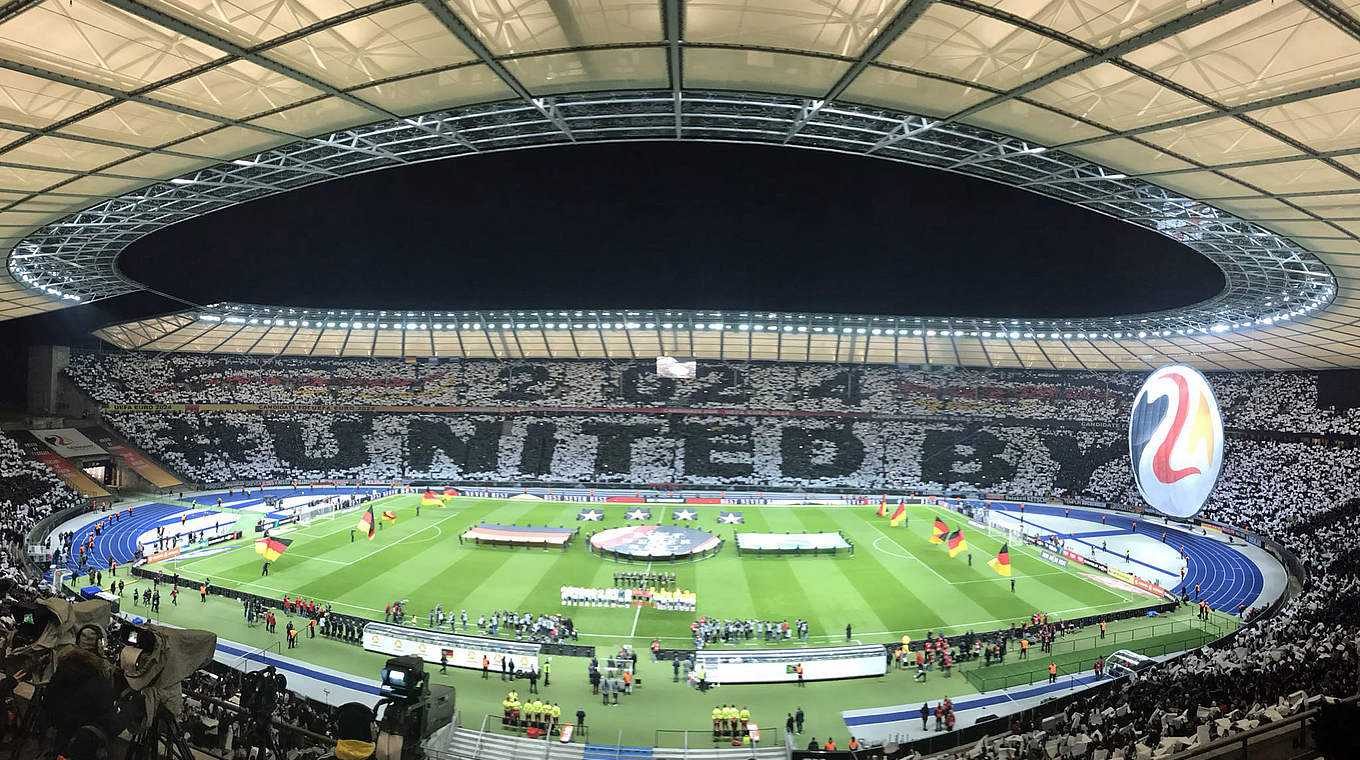By Andrew Warshaw
September 14 – Transparency, transparency, transparency. The word crops up time and time again whenever German officials discuss their bid to stage the 2024 European Championship.
German FA boss Reinhard Grindel and his team know full well they have the facilities, the infrastructure and the organisational know-how to beat sole rivals Turkey when the vote takes place in two weeks’ time at UEFA headquarters in Switzerland.
But with the fallout over the murky 2006 World Cup bid process an ever-present memory and one the new-look DFB regime would rather leave behind, no stone is being left unturned to restore Germany’s reputation as honest as well as efficient brokers and convince enough of UEFA’s executive committee to give them the nod over the underdogs on September 27.
In fact you could argue, judging by a recent visit to Munich by a hand-picked group of international reporters, that the Germans, who need no reminding about the scandal-tarnished 2006 campaign, are being squeaky clean.
Take, for instance, the ranking process for the 10 stadia that have been submitted to UEFA, conducted with the assistance of Transparency International. Interestingly, Hannover, which was a 2006 World Cup city and is the capital of Grindel’s home state, Lower Saxony, was not selected after coming only 12th.
“Of course I’m disappointed and some of my old friends asked me: ‘How can this be?’ But, after everything that has happened, we were absolutely determined to run a fair and open tender process and what this shows is how independent the process was,” says Grindel. “I doubt whether in previous times the place where the DFB president came from would not be chosen. Different times, different decisions.”
Which effectively means everything being done by the book without a hint of back-biting, personal favours or behind-the-scenes skullduggery. “We have learned from the mistakes of the past,” insists Grindel. “It’s a question of credibility that we have an exemplary bidding process.”
Turkey may have the sympathy vote having tried and failed three times to land previous Euros but as Morocco discovered to their cost when bidding for the 2026 World Cup, sympathy doesn’t necessarily translate into votes.
Also perhaps in Germany’s favour is the fact that UEFA may be inclined to go for the safe option following the pan-European, 13-city tournament in 2020 that was the brainchild of Michel Platini but is throwing up a number of logistical head-aches and is not entirely supported in concept by Platini’s successor Aleksander Ceferin.
Then there is also the question of whether Turkey, given its currency crisis, might scare off voters even though 2024 is still six years away during which time the Turkish economy might well recover.
Grindel is loath to discuss the pros and cons of Turkey’s campaign. Bidding rules prevent him from doing so. But in playing up Germany’s attributes, by association he makes his position known about their sole rivals. The very fact that Germany’s bid slogan is ‘United by Football’ speaks volumes about its message.
“I have the impression that how many times you have bid already is not necessarily the most important argument,” was all the highly diplomatic Grindel, a former politician, was prepared to say about the rival bid. “The only crucial question is what is best decision for football in Europe and for UEFA which needs a strong financial basis. We can guarantee sustainable revenues and maximum income. Sustainability is perhaps the key to our whole bid.”
Grindel’s bid team would never come out and say as much but Turkey’s chances of ending years of disappointment by finally landing 2024 might also potentially be scuppered by a new human rights provision in UEFA’s hosting guidelines. Germany may have staged three major footballing competitions in the past – the World Cup in 1974, the European Championship in 1988 as West Germany, and the World Cup again in 2006 while Turkey have never been hosts – but UEFA is unlikely to accept anything less than complete compliance.
With Turkey’s human rights record constantly under scrutiny, some insiders have suggested this could play into Germany’s hands.
“We want to organise a tournament that reflects the values of UEFA, the values of a united Europe,” says Grindel. “UEFA needs a host which can guarantee political and economic stability. We are the right partner at right time.”
Part of that message clearly hints at Germany’s use of football to reflect its tolerant policy of immigration. Figures show that 50,000 registered players arrived as refugees since 2015. “The ball is not interested in by whom it is kicked,” says Grindel.
Not everyone might agree. The hugely divisive case of Mesut Ozil, which at one point was in danger of overshadowing the recent media visit, simply won’t go away. Ozil, who has Turkish roots, quit international football following the global outcry over being photographed with controversial Turkish president Recep Erdogan, claiming the DFB did not give him sufficient support.
The Turks believe the furore will work in their favour come September 27 but although the DFB was placed in a highly awkward position amid unsubstantiated claims of racism, bid officials firmly believe that the Ozil case will not make the slightest difference. Nor, they say, will Germany’s dire showing at the World Cup in Russia.
“We are convinced that we have given UEFA very good arguments that we will be a very trustworthy host,” said Markus Stenger, head of the DFB’s bid team which for the last six months has had Burson-Marsteller Sport, the sports division of global advisory firm Burson-Marsteller, assisting with international strategy and communication.
“I think we will make it very difficult for executive committee members to say no to Germany.”
Contact the writer of this story at moc.l1751427089labto1751427089ofdlr1751427089owedi1751427089ssni@1751427089wahsr1751427089aw.we1751427089rdna1751427089

